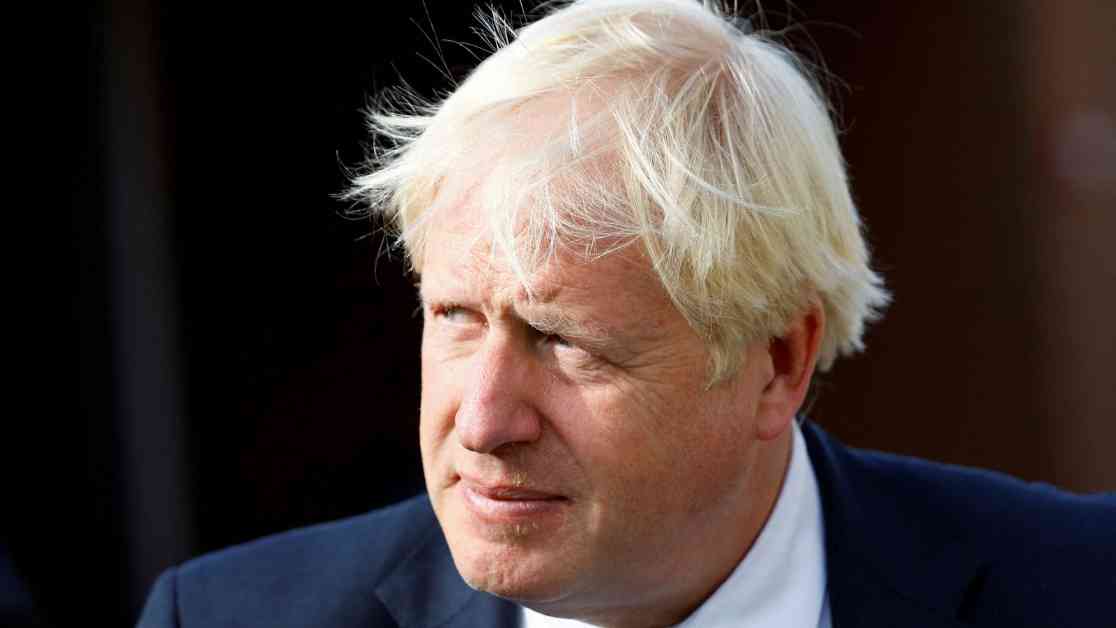Boris Johnson’s Contemplation of Raiding Dutch Warehouse for COVID-19 Vaccines
In a surprising revelation from his upcoming memoir, Boris Johnson disclosed that he had entertained the idea of authorizing a raid on a warehouse in the Netherlands to retrieve COVID-19 vaccines during the height of the pandemic. The Prime Minister described a meeting he had with senior military officials in March 2021 to discuss the audacious plans, which he candidly admitted were deemed as “nuts”.
During this meeting, Mr. Johnson delved into the details of his contemplation to potentially carry out a raid on a warehouse in the Netherlands, where AstraZeneca was attempting to export vaccines to the UK. He expressed frustration over what he perceived as the EU’s deliberate delays in vaccine distribution to the UK, leading him to consider drastic measures to secure the much-needed doses for his country.
The Prime Minister’s memoir also sheds light on a peculiar encounter he had with the Duke of Sussex, Prince Harry, in January 2020. As Downing Street and Buckingham Palace requested his intervention in persuading Prince Harry not to move to the United States following his announcement to step away from royal life, Mr. Johnson found himself in a rather unusual position. He described the encounter as a “ridiculous business” where he attempted to deliver a “manly pep talk” to Prince Harry, a futile effort according to the Daily Mail.
In a further excerpt from his memoir, Mr. Johnson revealed the circumstances surrounding his consideration of a potential aquatic raid on a warehouse in Leiden, Netherlands, to secure AstraZeneca vaccines for the UK. Amidst a cross-Channel dispute over vaccine exports, he felt compelled to explore unconventional methods to obtain the vaccines that were legally designated for the UK but facing delays in delivery.
The Prime Minister expressed his frustration with what he perceived as the EU’s malicious intent towards the UK during the vaccine rollout. He believed that the EU’s slower distribution pace was a deliberate act of malice and spite towards the UK. Military chiefs reportedly informed Mr. Johnson that the proposed raid on the Dutch warehouse was technically feasible, with plans to utilize rigid inflatable boats to navigate the Dutch canals for the operation.
While the military deemed the plan feasible, they cautioned Mr. Johnson about the potential diplomatic repercussions of effectively invading a long-standing NATO ally. Despite the logistical challenges, Mr. Johnson was determined to procure the much-needed vaccines for the UK, especially in the face of what he perceived as unjustified delays and obstacles imposed by the EU.
The proposed raid on the Dutch warehouse symbolized the lengths to which Mr. Johnson was willing to go to ensure the timely delivery of vaccines to his country. The incident underscored the high-stakes nature of the global vaccine distribution efforts and the intense competition among nations to secure limited vaccine supplies during the critical phase of the pandemic.
In conclusion, Boris Johnson’s contemplation of raiding a Dutch warehouse for COVID-19 vaccines offers a glimpse into the complexities and challenges faced by world leaders during the unprecedented health crisis. His memoir provides a unique perspective on the behind-the-scenes decision-making processes and the strategic considerations that shape global responses to public health emergencies.













